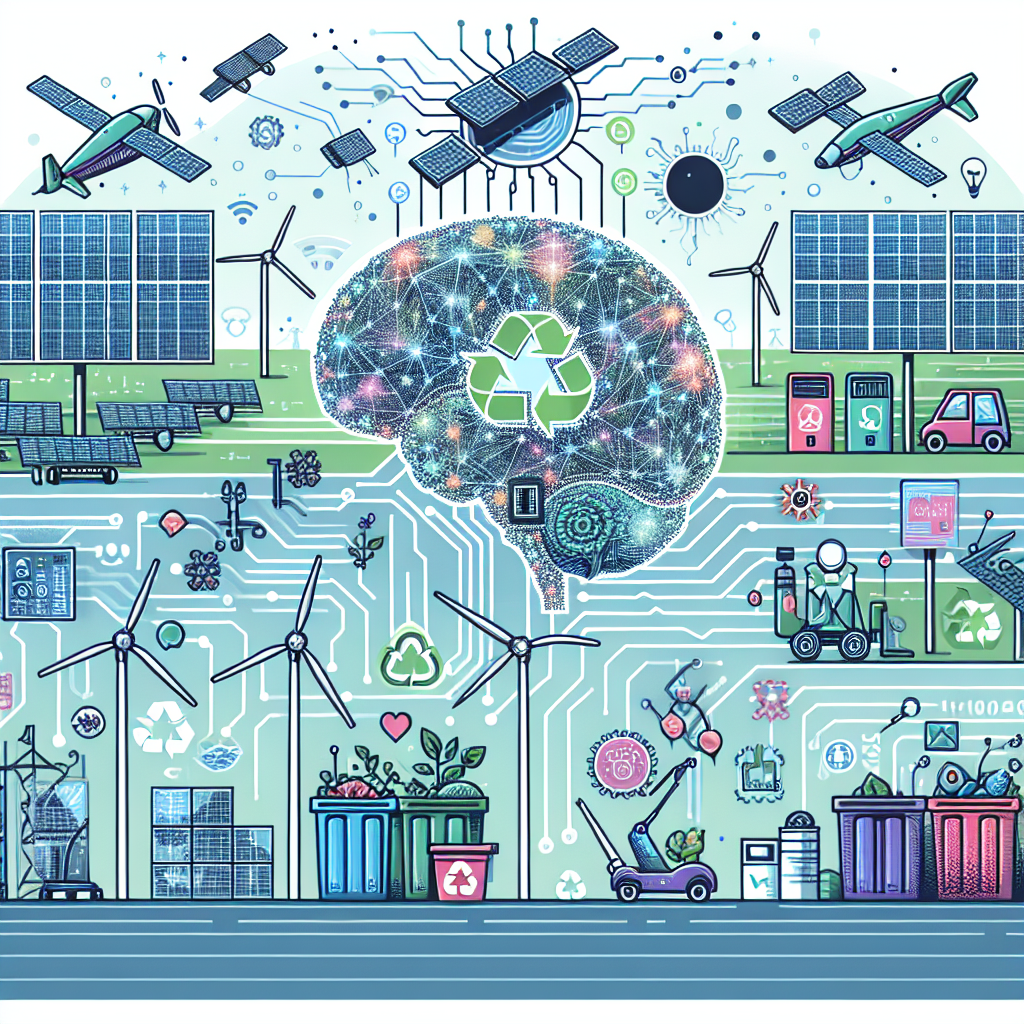Artificial intelligence (AI) has the potential to revolutionize sustainable resource management in various industries, from agriculture to energy production. With its ability to analyze large amounts of data and make predictions based on that data, AI can help optimize resource use, reduce waste, and improve overall efficiency. In this article, we will explore the future of AI in sustainable resource management and discuss how this technology can help address some of the most pressing environmental challenges facing the planet.
One of the key areas where AI can make a significant impact in sustainable resource management is in agriculture. By analyzing data on weather patterns, soil conditions, and crop yields, AI can help farmers make more informed decisions about when to plant, water, and harvest their crops. This can lead to higher yields, lower costs, and reduced environmental impact. For example, AI-powered irrigation systems can help farmers use water more efficiently, reducing the amount of water wasted and the risk of water scarcity.
In the energy sector, AI can help optimize the use of renewable energy sources such as solar and wind power. By analyzing data on energy production and consumption, AI can help utilities better match supply and demand, reducing the need for fossil fuel-based power plants and lowering greenhouse gas emissions. AI can also help identify opportunities for energy efficiency improvements, such as optimizing the operation of HVAC systems in buildings or reducing energy waste in industrial processes.
Another area where AI can play a crucial role in sustainable resource management is in waste management. By analyzing data on waste generation and disposal, AI can help identify opportunities for recycling, composting, or other waste reduction strategies. AI-powered sorting systems can help separate different types of waste more efficiently, increasing the amount of material that can be recycled and reducing the amount of waste sent to landfills. This can help reduce the environmental impact of waste disposal and conserve valuable resources.
AI can also help improve the sustainability of water management practices. By analyzing data on water quality, usage, and availability, AI can help identify opportunities for water conservation and pollution prevention. AI-powered sensors can monitor water quality in real-time, alerting authorities to potential issues such as contamination or leaks. This can help protect water resources and ensure a safe and reliable water supply for communities.
In the transportation sector, AI can help reduce the environmental impact of vehicles by optimizing routes, reducing fuel consumption, and minimizing emissions. AI-powered traffic management systems can help reduce congestion and improve traffic flow, leading to lower fuel consumption and reduced air pollution. AI can also help optimize the operation of electric vehicles, ensuring that they are charged at times when renewable energy sources are most abundant.
Overall, the future of AI in sustainable resource management is bright. By leveraging the power of AI to analyze data, make predictions, and optimize systems, we can improve the efficiency of resource use, reduce waste, and minimize environmental impact. As AI technology continues to advance, we can expect to see even greater benefits in terms of sustainability and environmental protection.
FAQs:
Q: How can AI help improve water management practices?
A: AI can help improve water management practices by analyzing data on water quality, usage, and availability. AI-powered sensors can monitor water quality in real-time, alerting authorities to potential issues such as contamination or leaks. This can help protect water resources and ensure a safe and reliable water supply for communities.
Q: How can AI help reduce waste in the agriculture industry?
A: AI can help reduce waste in the agriculture industry by analyzing data on weather patterns, soil conditions, and crop yields. By making more informed decisions about when to plant, water, and harvest crops, farmers can reduce waste and improve overall efficiency.
Q: How can AI help optimize energy production from renewable sources?
A: AI can help optimize energy production from renewable sources by analyzing data on energy production and consumption. By better matching supply and demand, utilities can reduce the need for fossil fuel-based power plants and lower greenhouse gas emissions.
Q: What are some examples of AI-powered solutions in sustainable resource management?
A: Some examples of AI-powered solutions in sustainable resource management include AI-powered irrigation systems in agriculture, AI-powered sorting systems in waste management, and AI-powered traffic management systems in transportation. These solutions can help improve efficiency, reduce waste, and minimize environmental impact.

